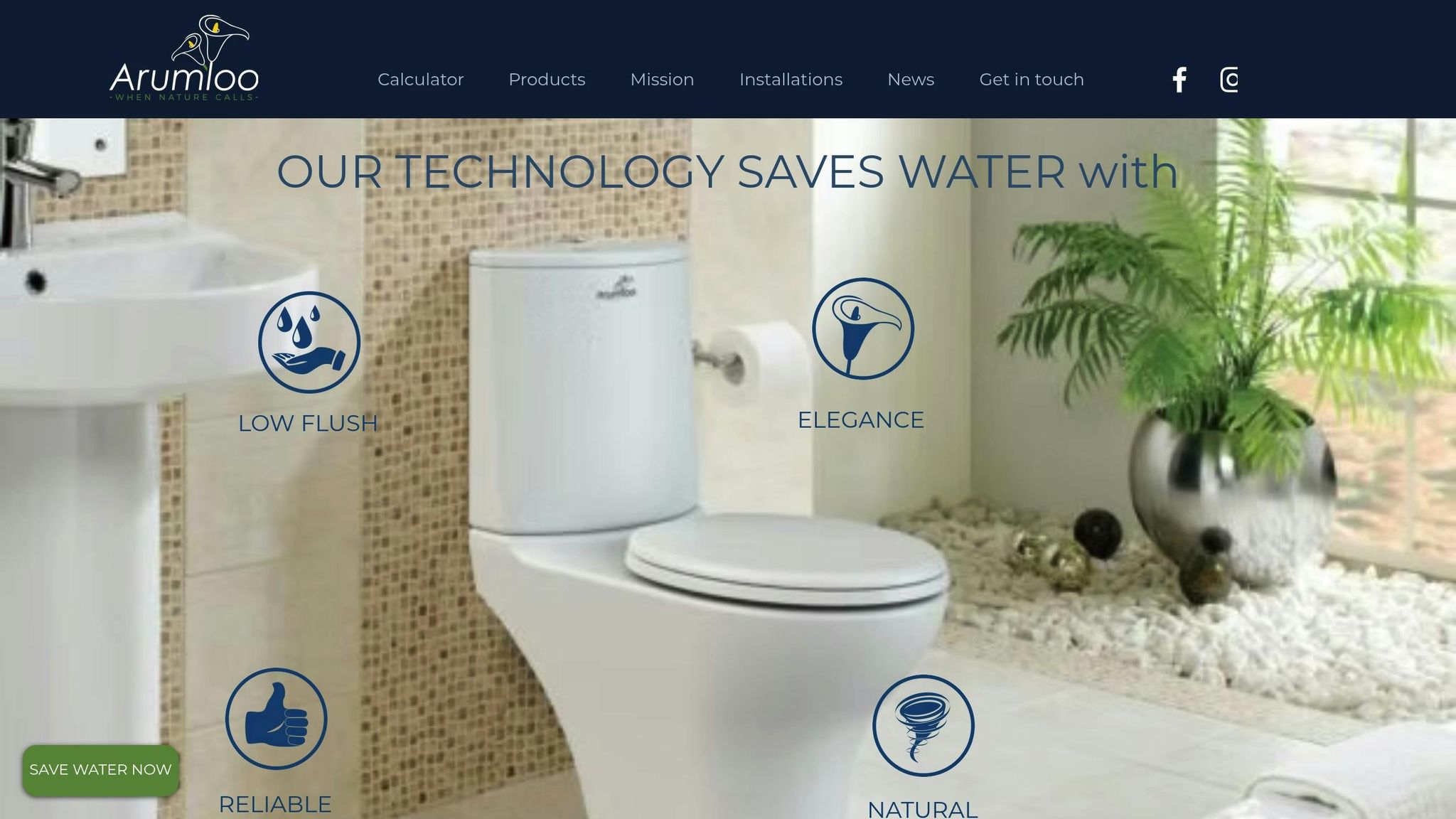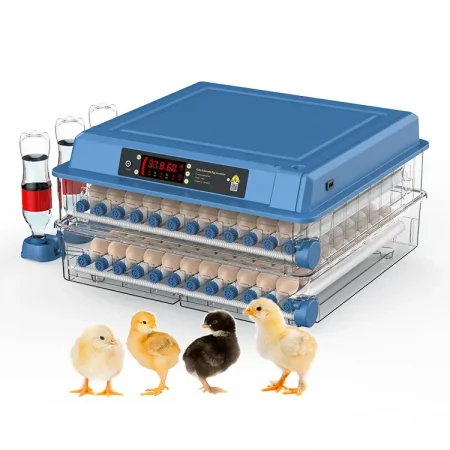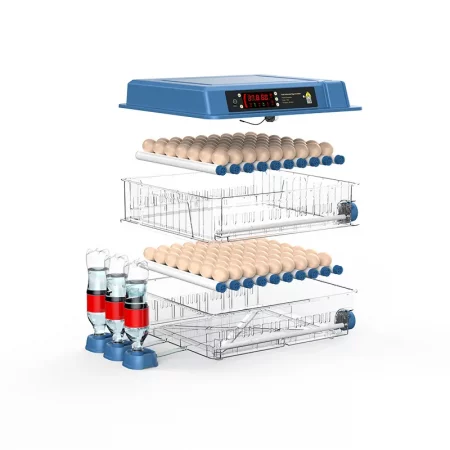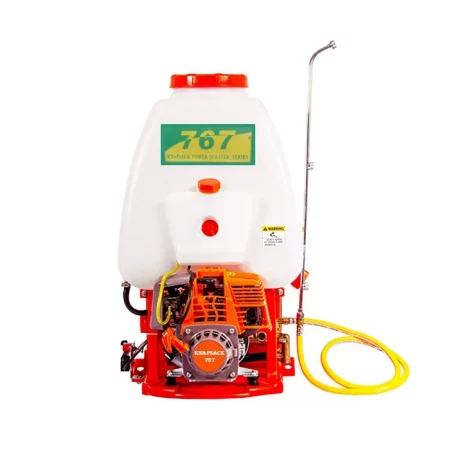Africa is facing a severe water crisis. By 2025, 230 million Africans will experience water scarcity, with agriculture consuming 70% of the continent’s water. Startups are stepping in with practical technologies to save water and improve efficiency. Here are 5 companies making a difference:
- Soil Regen Guy: Combines bio-enhanced soil treatments with smart irrigation to improve water retention for small farms.
- Afrisoul: Offers solar-powered sensors and a mobile app for precision irrigation, helping smallholder farmers conserve water.
- LiquidGold: Recycles wastewater for irrigation, achieving a 76% water reduction in a South African school project.
- Arumloo: Creates water-efficient toilets and sanitation hubs, reducing water use while improving hygiene.
- FOST: Uses AI and satellite data to optimize irrigation on large farms, cutting water use by up to 40%.
Quick Comparison
| Startup | Technology | Target Users | Water Savings | Cost |
|---|---|---|---|---|
| Soil Regen Guy | Bio-enhanced soil + smart irrigation | Smallholder farmers | Significant water savings | Affordable, local materials |
| Afrisoul | Solar sensors + mobile app | Smallholder farmers | Conservation via precision | Pay-as-you-grow plans |
| LiquidGold | Wastewater recycling systems | Schools, households | 76% reduction | Mid-range, rapid ROI |
| Arumloo | Water-efficient toilets + sanitation | Communities, urban areas | Significant water savings | Community-focused pricing |
| FOST | AI + satellite irrigation platform | Large farms | Up to 40% reduction | Enterprise-level pricing |
These startups are addressing Africa’s water challenges with tailored, accessible, and scalable solutions.
Safe, cheap and sustainable: Clean water technology for Africa
How We Selected These Startups
Choosing the startups featured in this roundup involved a detailed evaluation process based on several key factors. Our focus was on companies developing water-saving technologies that address Africa’s specific challenges with practical and scalable solutions. Here’s what guided our selection:
Affordability was the top priority. Research shows that for technology to gain traction, it must be cost-effective, efficient, user-friendly, and maintainable with locally available resources. We gave preference to startups offering solutions that small-scale farmers and urban communities can adopt without straining their budgets.
Scalability and modularity came next. We prioritized companies that use modular designs, enabling small-scale deployment that can grow over time without requiring heavy initial investments. The selected startups showcased how their solutions could expand from individual farms to benefit entire communities.
Measurable impact was another critical factor. We looked for startups that could clearly demonstrate the results of their solutions, whether through water conservation, higher crop yields, or better access to clean water. For instance, the African Water Facility has shown the power of measurable outcomes, having delivered safe water to over 15.9 million people and improved sanitation for over 9.3 million through 138 projects.
When it came to technology innovation, we avoided startups that simply repurpose technologies from developed markets. Instead, we focused on companies creating solutions specifically designed for Africa’s unique agricultural and urban water management challenges – like drought-resistant farming techniques and smart monitoring systems for areas with limited infrastructure.
Local relevance was a major consideration. With 66% of Africa classified as Arid and Semi-Arid Lands, home to approximately 200 million people, we prioritized startups tackling these harsh conditions. Urban water issues were also a focus, given that less than 15% of Africa’s population has access to proper wastewater treatment.
The funding landscape played a role in our decisions as well. In 2021, only 11% of venture capital deals in Africa exceeded $10 million, and water-focused startups received just 22% of available funding. We selected companies that showed they could create meaningful impact despite operating with limited financial resources.
Lastly, community adoption served as a validation measure. We chose startups with proven success in real-world applications, whether by farmers, urban groups, or businesses across Africa. Each featured company has demonstrated its ability to implement solutions that are embraced by the communities they serve.
5 African Startups Creating Water-Saving Technologies
These five African startups are making waves in water conservation with practical and scalable solutions. Each one addresses unique local challenges while ensuring their technologies remain accessible to smallholder farmers.
Soil Regen Guy
Soil Regen Guy focuses on regenerative agriculture to improve soil water retention. By blending traditional organic methods with modern soil science, they’ve developed a bio-enhanced soil treatment made from locally sourced materials. This is paired with a smart irrigation system that notifies farmers when to water. Trials in Kenya have shown increased efficiency and significant water savings.
Afrisoul
Afrisoul is revolutionizing irrigation with sensor-driven systems tailored for areas with limited connectivity. Their solar-powered sensors monitor soil moisture, temperature, and humidity, sending updates to a user-friendly mobile app. With affordable pay-as-you-grow plans and local support, Afrisoul empowers smallholder farmers to conserve water and boost crop yields.
LiquidGold
LiquidGold turns wastewater into a valuable resource for irrigation. Their treatment systems handle both household and agricultural wastewater, making it reusable. A pilot project at Kyalami Schools in South Africa achieved a 76% reduction in water usage within weeks. The project also turned the school into a learning center for water conservation, showcasing the system’s potential for rapid returns on investment.
Arumloo

Arumloo takes on water efficiency and sanitation with their EcoFlush toilet systems, which reduce water consumption without compromising hygiene. Their community sanitation hubs go a step further by recycling water and converting waste into energy. Early projects in Lagos have demonstrated significant water savings and improved hygiene standards.
FOST
FOST uses artificial intelligence and satellite data to optimize irrigation on large farms. Their AgriAI platform analyzes weather, soil, and crop data to provide precise watering recommendations. This approach has cut water usage by up to 40% while boosting yields. Trials in Tanzania highlight the potential of AI to improve both water conservation and agricultural productivity.
These startups are paving the way for smarter, more sustainable water use across the continent.
sbb-itb-dd089af
Startup Comparison Table
Here’s a comparison of five African startups focused on water-saving technologies:
| Startup | Technology Type | Target Users | Cost Range | Reported Water Savings | Scalability |
|---|---|---|---|---|---|
| Soil Regen Guy | Bio-enhanced soil treatment + smart irrigation | Smallholder farmers | Affordable, using local materials | Reported water savings | High – relies on locally sourced materials |
| Afrisoul | Solar-powered sensors + mobile app | Smallholder farmers | Pay-as-you-grow plans | Water conservation through precision irrigation | High – solar-powered, mobile-based |
| LiquidGold | Wastewater treatment systems | Schools, households, agricultural operations | Mid-range investment with quick ROI | 76% reduction at Kyalami Schools | Medium – requires infrastructure setup |
| Arumloo | EcoFlush toilets + sanitation hubs | Communities, urban areas | Community-focused pricing | Reported water savings | High – modular community approach |
| FOST | AI + satellite data platform | Large commercial farms | Enterprise-level pricing | Up to 40% water reduction | High – scalable AI platform |
Each startup brings something distinct to the table. Soil Regen Guy and Afrisoul focus on smallholder farmers, offering affordable solutions like bio-enhanced soil treatments and solar-powered sensors. LiquidGold targets institutions such as schools and households, showcasing impressive results like a 76% water reduction at Kyalami Schools, with a return on investment in under three months. Arumloo takes a dual-purpose approach, combining water efficiency with improved sanitation through community-focused pricing. Meanwhile, FOST caters to large commercial farms, using AI and satellite data to achieve up to 40% water savings, making it an appealing option for enterprise-level clients.
Conclusion
These five African startups are stepping up to tackle one of the continent’s toughest challenges: water scarcity. From Soil Regen Guy’s bio-enhanced soil treatments to FOST’s water-saving technologies, they’re delivering solutions born out of necessity – solutions that are making a real difference.
Water scarcity is no small issue. By 2025, as many as 230 million Africans could face severe water shortages. These startups are addressing both immediate needs and long-term challenges. Afrisoul and Soil Regen Guy, for instance, are empowering smallholder farmers with affordable, scalable tools – critical for securing Africa’s agricultural future. On the other hand, FOST demonstrates how water-saving innovations can work across a range of applications, from small-scale efforts to larger operations.
The economic stakes are just as high. Poor water infrastructure costs Sub-Saharan Africa 5% of its GDP annually, amounting to a staggering $170 billion. Yet, every $1 invested in water and sanitation yields at least $7 in returns. These startups aren’t just solving environmental problems – they’re creating economic opportunities.
The potential here is transformative. As climate change accelerates and populations grow, Africa needs solutions that combine cutting-edge technology with local relevance. These startups are proving that homegrown innovation can rise to meet these challenges.
With 93% of climate change impacts expected to hit the water sector, supporting these initiatives is more than a smart move – it’s essential. By investing in these technologies, Africa is not only addressing its water challenges but also shaping a more resilient and prosperous future. Local ingenuity is redefining how the continent manages its most precious resource.
FAQs
How are African startups using water-saving technologies to tackle challenges faced by farmers and communities?
African startups are tackling water management challenges head-on with technologies designed specifically for local conditions. They’re introducing tools like smart irrigation systems, digital platforms for monitoring soil and water, and water harvesting solutions that make every drop count. These advancements help farmers use water more efficiently, cut down on waste, and navigate unpredictable climate patterns.
For smallholder farmers, these innovations are game-changers. They enable better crop yields, strengthen food security, and offer a buffer against water shortages. By prioritizing practical and accessible solutions, these startups are reshaping agriculture and uplifting communities throughout Africa.
How can water-saving technologies benefit small-scale farmers and urban communities economically?
Adopting water-saving technologies offers financial benefits for both small-scale farmers and urban residents. For farmers, these tools improve how water is used, helping lower expenses while increasing crop production. This not only boosts income but also strengthens overall farm productivity. Urban areas, on the other hand, see reduced water usage and lower utility bills, allowing resources to be allocated to other priorities and enhancing water availability.
These advancements also play a key role in addressing water scarcity, helping both rural and urban areas build resilience. By conserving water and reducing costs, communities can work toward a more secure and thriving future.
What steps can African startups take to expand and sustain their water-saving technologies across the continent?
To make water-saving technologies more accessible across Africa, startups should focus on creating low-cost, practical solutions that address specific local challenges. Think systems like rainwater harvesting setups, methods for recycling water, or solar-powered pumps. These tools need to be built to handle different environments and work well even with limited resources.
Teamwork plays a huge role here. Collaborating with governments, NGOs, and private investors can open doors to funding and policy support. Startups should also look into flexible business models and creative financing methods – options like microloans or pay-as-you-go plans can make these technologies more affordable for communities. By taking this approach, startups can tackle regional issues effectively while laying the groundwork for lasting change.
Related posts
/* Shares”}};
/* ]]> */




















